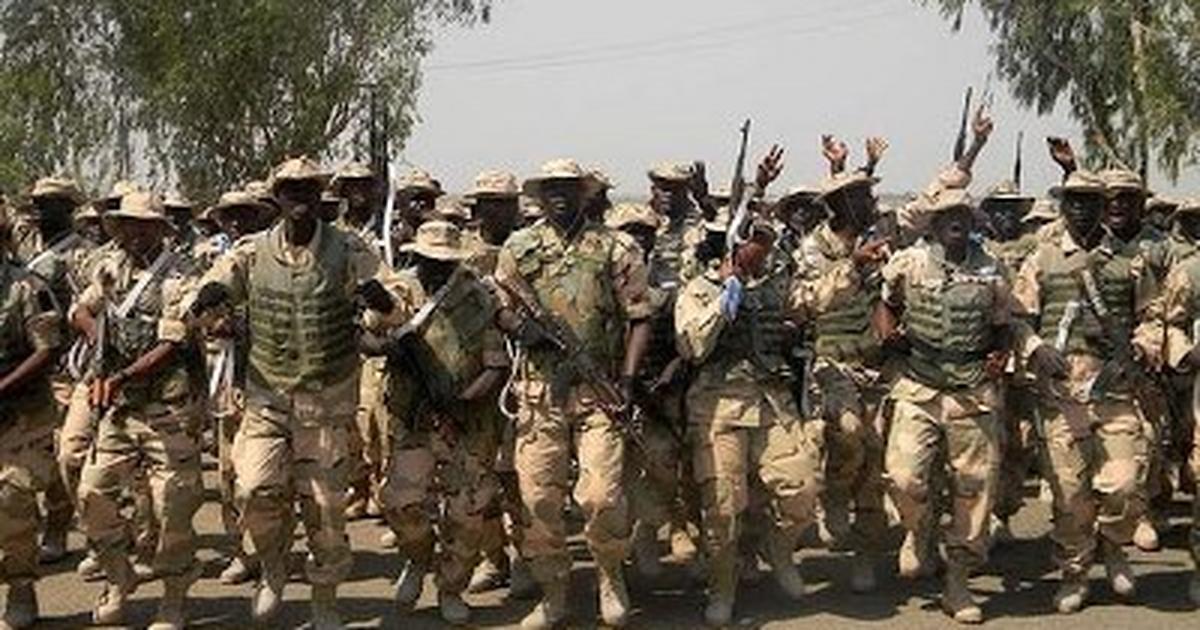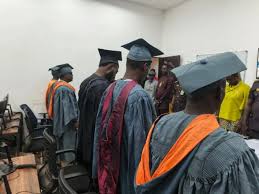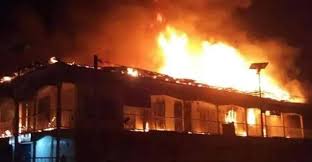
Army begins enlisting ex-soldiers to bridge manpower shortfall
The large number of people who voluntarily retired raises the possibility that the Nigerian Army is currently facing a severe manpower deficit.
The Mechanical Engineering Corps was reported to have been severely impacted by the development.
In the past four years, more than 1,008 troops have left the Nigerian Army.
The story claims that the Nigerian Army authorised the retirement of at least 59 troops in 2023.
Pastor in Lagos: "The tithe is too small to run the church."0:00 / 0:00
There were 261 troops who quit earlier in 2022, 127 in 2021, and 365 in 2020.
196 troops left the Army in August of this year.
Maj Gen Onyema Nwachukwu, the Army spokesperson, responded to the story by stating that the service was conscripted.
However, it was learnt that the army intended to re-engage discharged soldiers in order to fill the gap.
In a message dated October 16, 2024, which our journalist was able to get, the mechanical corps bemoaned the large number of soldiers who left the unit.
All commanding officers were advised to contact discharged soldiers in the area of responsibility, according to the message written by Lt Col A. Muhammad.
"The deployment of technical manpower is essential for effective and efficient equipment support in the field, which is based on trades/expertise of technicians," it said in part. There is a severe staffing shortage at NAEME right now.
"The lack of personnel in the Corps is further compounded by the large number of voluntarily discharged soldiers in recent years. Consequently, I am directed to request Comds/COs to reach out to discharged skilled soldiers in their AOR who are willing to be re-engaged to the NA on a contract basis.
“I am to add that names of discharged personnel willing to be re-engaged should be forwarded to this Headquarters NLT 19 Oct 24 using the attached proforma. Grateful to treat and acknowledge.”
Nwachukwu did not pick up calls put through to him and had yet to respond to the message sent to him on the issue.
Speaking on the development, Brig Gen Bashir Adewinbi (retd) said the plan to re-engage retired soldiers was a good idea.
He said, “It is not unusual for retired Army officers to come back and participate in the security architecture of a nation. This practice is common in other advanced countries.
“If there is a plan to implement this here, I believe it is a good idea.”
Asked what could be done to discourage soldiers from resigning from the service, Adewinbi said the military must ensure those enlisted were genuinely interested in the service.
He said, “As of today, the military is well-organised and well-structured. The welfare system is adequate, and the training we received was never a source of complaint. If, as you said, they are leaving in their numbers, it suggests that something might be wrong with recruitment.
“The focus should be on recruiting people who are genuinely interested in serving, rather than those simply looking for employment because they have no other options.
“Those truly dedicated to the military will remain regardless of the challenges or conditions. They won’t abandon their duty. Unfortunately, some people in this country are merely searching for jobs.”
Adewinbi noted that joining the military was about service to the nation.
He said, “But joining the military isn’t just about finding a job; it’s about serving the nation. In our time, we never prioritised welfare. Even when we were young officers, our civilian counterparts were often better off, but we didn’t care. The uniform came with an unquantifiable level of respect, and that respect was more valuable than money.
“Being in the military is a career of integrity, one that commands respect in society. That’s what we valued in those days — not the material benefits, but the honour that came with the service. Honestly, the military remains one of the best organisations to start a career.
“You’re provided accommodation immediately, your salary is never delayed, and the challenges are there for those who seek them. There are many benefits, including opportunities for further education, both civil and military. You can pursue a master’s degree or a BSc while serving. The military provides these opportunities.
“So, I’m surprised that people are leaving the military. Where are they going? What will they do? I can’t understand it.”
Also, Brig Gen Peter Aro (retd) noted that soldiers were resigning from the Army to secure a better future for themselves.
He added that many of them were scared to end up like those before them.
According to Aro, there are various ways to resign from the army, including achieving the required military age, being declared medically unfit, or choosing to do so voluntarily. For individuals who choose to retire willingly, however, it's much more than simply leaving on their own terms; it's about surviving and securing a brighter future before they become like so many other forgotten veterans.
To protect this country, these men and women gave their youth, vigour, and sometimes even their lives. And for it, what do they have to offer? The fortunate few who had the opportunity to engage with civilians were able to learn about life outside of the barracks.
"They acquired the knowledge and experience required to identify alternate sources of income, yet the majority weren’t so lucky.”
Additionally, he hinted that soldiers were quitting because of systemic injustice.
"This injustice has repeatedly occurred in our nation," Aro stated. Do you recall a time when a prior chief of army staff pushed officers into retirement well in advance of their due dates without strictly adhering to the terms and conditions of service?
Many of these men and women are still fighting for their lives today because they were abandoned and ill-prepared for life after military. Our political leaders' apathy makes it very evident that military personnel welfare is not a top priority.
The discipline and sacrifices of military duty limit soldiers' everyday lives, making it difficult for them to engage in the kinds of civilian activities that could help them prepare for life after the Army.
"Our soldiers, who are the ones who fight on the front lines protecting our country's sovereignty, return from years of duty without the same opportunities that police and paramilitary officers have to socialise, invest, and form civilian relationships.
"A large number of soldiers who have sacrificed their lives for this nation lack even the most basic life insurance. Due to the unbridled authority of leadership to "hire and fire" at will and the subpar working conditions in the Nigerian Army, many have sought early retirement merely to protect themselves.
"When you think about the highly qualified professionals in the Army — doctors, engineers, and other specialists — who have been forced into early retirement without warning, the tragedy deepens," he continued.
During General Obasanjo's military dictatorship, the majority of permanent secretaries in the civil service were retired without ceremony. This created a culture where people took advantage of any chance to secure their old age. Those that put their all into the army are being ignored as a result of this tendency.
Imagine this: as new, opulent mansions are being constructed and offered for sale to the wealthy, veterans who once stood proudly in the service of this great country are now being sent to isolated locations. These individuals are the same ones who sacrificed their life on the line for the nation’s peace and security.
“Have you ever heard of a minister of housing building homes for veterans, as we see in other countries? These men and women are humiliated daily, their sacrifices forgotten, and their contributions ignored.
“Some of them are consultants, PhD holders, and highly trained professionals — but what use is that recognition if they are not treated with the dignity they deserve?
“Would it not be better for these heroes to retire early, rejoin civilian life, and thrive alongside their counterparts? Many who left the Army early are better off today than those who stayed until the end, only to be cast aside.
“They leveraged their army training, secured local and international employment, and are now earning good wages and being treated with the respect that their service demands.”
He said one day, there would be few soldiers to defend the country if some of these issues were not checked.
Aro said, “One day when there are too few soldiers left to defend our borders, our political leaders will be forced to wake up. They’ll realise the mistake of neglecting the men and women who protect this nation. A nation is only as strong as the commitment it shows to its military.
“If we truly care about the future of this country, we must overhaul the welfare system and terms of service for our soldiers. Our veterans, those who sacrificed the best years of their lives, must be treated with the honour and fairness they deserve.
“And to the politicians enjoying the fruits of peace and stability today — peace built on the backs of the military — let them remember that they owe their fortunes to the sacrifices of these unsung heroes. It’s time to repay that loyalty.
“How can a





